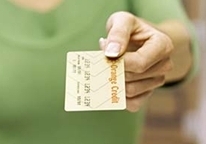What You are up Against continued…
Our enormously productive economy demands that we make consumption our way of life, that we convert the buying and use of goods into rituals, that we seek our spiritual satisfactions, our ego satisfactions, in consumption. The measure of social status, of social acceptance, of prestige, is now to be found in our consumptive patterns. The very meaning and significance of our lives today is expressed in consumptive terms. The greater the pressures upon the individual to conform to safe and accepted social standards, the more he tends to express his aspirations and his individuality in terms of what he wears, drives, eats, his home, his car, his pattern of food serving, his hobbies. – Victor Lebow “The Real Meaning of Consumer Demand
The quote above is very instructive. If you grew up in the baby boomer generation or earlier you were shaped by an economy that was very different from the one we encounter today. Back then shoes were shoes. Yes, there were expensive shoes and cheap shoes but a shoe was a shoe. Now we encounter branding where a shoe is more than just a shoe. A certain type of shoe can not only be expensive but is now the “must have” item that says to all the world that you are hip and part of the latest trend. We have moved from a society that produces things to one that consumes things. And, that consumption is what moves our economy. It is small wonder that in a never ending list of “the next new thing” some of us have run into difficulty curbing the urge to acquire things we can no longer afford.
We continually receive the message that if we just stop spending, all will be right with the world, and for some people that is the simple solution. But, awhile back I was reading about the experience of a young  woman who had entered a money makeover sponsored by the local newspaper. She had cut up the credit cards and set up a very strict budget, but one month in she was beginning to experience withdrawal symptoms. You could see she had begun to openly question how she was going to continue on the regime. She missed her Starbucks coffee and dinners out with friends. It was plain for all to see that she was ready to fall off the money make-over wagon.
woman who had entered a money makeover sponsored by the local newspaper. She had cut up the credit cards and set up a very strict budget, but one month in she was beginning to experience withdrawal symptoms. You could see she had begun to openly question how she was going to continue on the regime. She missed her Starbucks coffee and dinners out with friends. It was plain for all to see that she was ready to fall off the money make-over wagon.
According to the National Federation of Credit Counseling, Of the 3.2 million people who contacted NFCC agencies for help during 2009:
- About one-third were able to handle their finances on their own after a counseling session.
- Another third were either too far gone for debt management plans to help, with too little income, too much debt, or had problems credit counseling couldn’t help such as a gambling problem, alcoholism or other addictions.
- The final third enrolled in debt-management programs, but the dropout rate averaged at least 45%.
The picture to be drawn from that final third is that will power is simply not enough if we do not get to the underlying reasons for our money behavior. Too often, like the young woman previously mentioned, we submit to money controls just long enough to get beyond a specific moment of difficulty. Once the crisis has passed we gradually return to some of the behaviors that got us into the crisis in the first place.
“I knew I owed a good deal of money, but every month when the credit card statement arrived I just refused to open it. If I didn’t open it then I didn’t know the extent of the hole I was digging and I could keep going.” Larry – an office manager
This compulsive behavior with money has little if any correlation with the amount of money the person actually has. Even with no money the compulsive spender is able to find ways to continue to buy things. And, we have all heard stories about people who have won the lottery, which was suppose to solve all their problems, and yet they ended up broke or in worse cases took their own lives after spending it all. It is not the amount of money one has but the manner in which you use it and the effect it has on your life.
Understanding the underlying drive behind your money behavior empowers us and increases the chances of successful behavior modification. It empowers us because we begin to understand our money makeup. It helps us develop strategies to deal with the specific triggers buried in ever present advertising and temptations we encounter as we live out our lives.
That young woman’s underlying belief system will continue to sabotages her attempts no matter how earnest they may be. She may abstain for awhile but there is a message playing in her head that refuses to be silenced. Until we have modified that message the behavior is like a boomerang that at some point is destined to return.
In the next post we will explore what is a money personality and the attributes of each.


I love the line about “it is not the amount but the manner in which you use it in your life”.. so true!!.omg..
Chrissy,
I hope as the series moves along what I was saying about money being more than “money” is beginning to make sense. I wanted to set the stage to give an indication of what the average person is up against before going into the money personalities. I think the personality descriptions will shed a lot more light on the range of behavior out there.
Lady, u should publish this.. I don’t think people really understand the underlying reasons why they spend or if they do, its to scary for them to admit… and yes the personality descriptions will definitely shed a lot of light to those that are willing to see that they have an issue w/money…
Chrissy,
What the descriptions will highlight is that to some degree we all have “issues” with money. It only becomes a problem when the issue begins to overwhelm other aspects of our lives.
IT,
Thanks for the compliment. I don’t know about it being the best
but is my take on a complex subject.
If you would like to follow the series from it’s beginning
simply type the word “debt” in the search box at the upper
right of the page and it will bring all the posts in the
series.